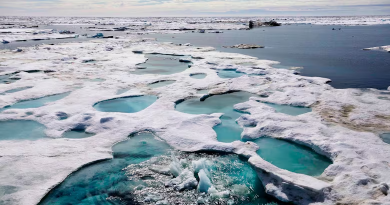$125.2 million announced for high-speed internet in Inuit region of Arctic Quebec

Ottawa and the province of Quebec announced $125.2 million this week to help improve high-speed internet in Nunavik, the Inuit region of northern Quebec.
The money will go towards projects to help get internet access in the region’s 14 communities up to par with the rest of the province.
“This important investment will support students and youth in learning and residents in day-to-day life with connected devices,” said Stéphane Lauzon, federal parliamentary secretary for sport and persons with disabilities in a news release on Wednesday.
“It will also support businesses and institutions by giving them the technological tools they need to succeed in the digital economy. It’s all part of our government’s plan to help create opportunity in all communities, including remote communities in the North.”
Fibre-optic infrastructure and backbone networks
Ottawa will contribute $62.6 million through its Connect to Innovate program, a plan set up to help equalize the high-speed internet divide between urban Canada and people living in rural or remote communities.
Quebec’s contribution of $62.6 million will come through the ministry of economy, science and innovation.
The Kativik Regional Government, the body that administrates Nunavik, will contribute another $500,000.

The money will be used to build fibre-optic infrastructure along the eastern coast of Hudson Bay up to the community of Puvirnituq. A backbone network will also be built in Kuujjuaq, Nunavik’s administrative capital, to allow for long-distance interconnection.
“We are proud to support this important project by the Kativik Regional Government that will enable more households and businesses to connect, thereby contributing to Nunavik’s economic growth and the vitality of the Nord‑du‑Québec region,” said Dominique Anglade, Quebec’s deputy premier, minister of economy, science and innovation, and minister responsible for the digital strategy, in Wednesday’s news release.
“Just like electricity was a driving force in the 20th century, access to broadband Internet is today a powerful driver of digital and socio-economic development.”
Long-standing issue
The lack of high-speed internet in Canada’s Arctic communities is often cited as one of the biggest hurdles to economic and business development in the region.
Many regions of Canada’s Arctic still rely on satellite, signals that are easily blocked by heavy rain or snow, meaning connections can be knocked out for long periods.
Write to Eilís Quinn at eilis.quinn(at)cbc.ca
Related stories from around the North:
Canada: SpaceX rocket launch will mean faster internet for Canada’s Nunavut, CBC News
Finland: Sámi school preserves reindeer herders’ heritage with help of internet, Cryopolitics Blog
Norway: Two new satellites to boost Norway’s Arctic internet, The Independent Barents Observer
Russia: Russia to link military installations with trans-Arctic cable, The Independent Barents Observer
Sweden: Northern Sweden to host more Facebook servers, Radio Sweden
United States: Healthcare facilities in rural Alaska struggle to pay internet bills, Alaska Public Media



